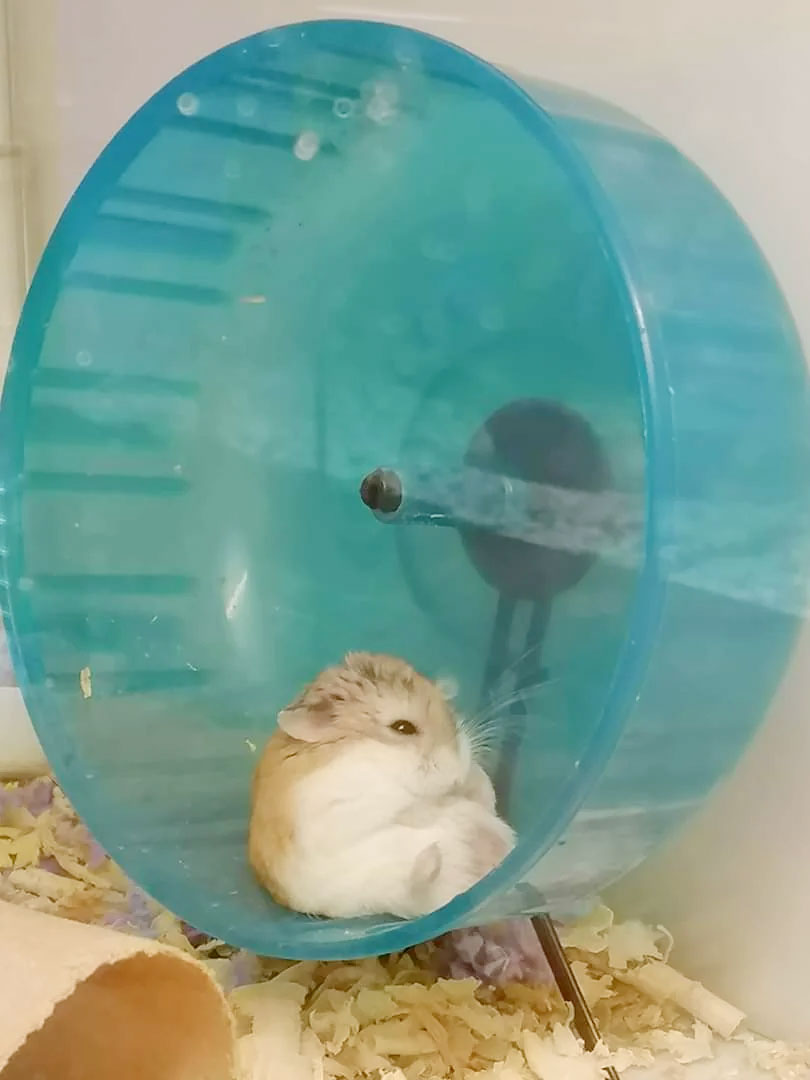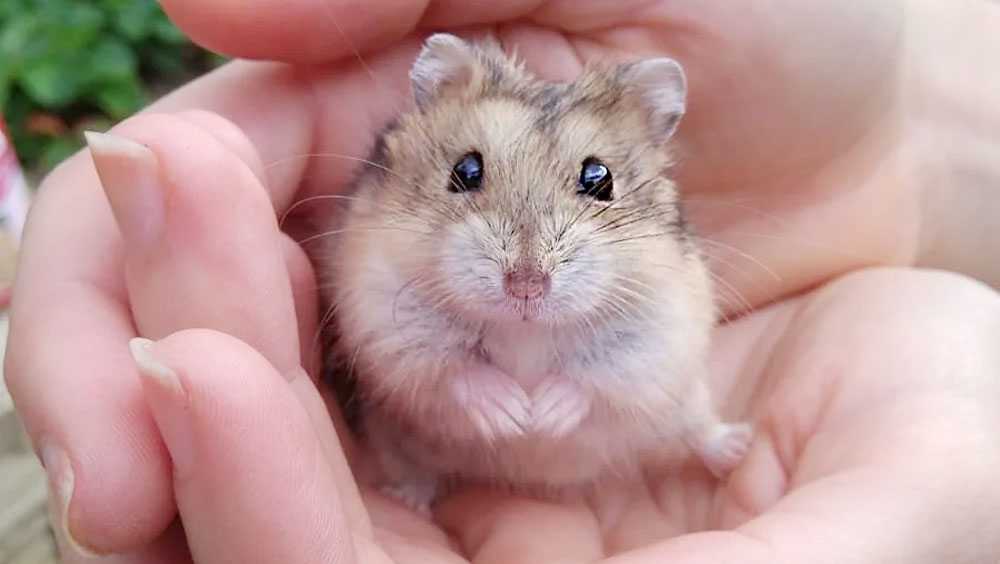Although they're cute and cuddly, hamsters can bite out of fear and as a defense mechanism. It's also their way of moving something out of the way. After all, their mouths are much larger than their paws. In comparison to Syrian hamsters, Dwarf hamsters are slightly more inclined to this behavior because they're smaller and more defenseless. Hamsters that bite are not necessarily aggressive. It's possible to correct this behavior with some simple tips.
Be Consistent with Training

To stop your hamster from biting you, get them used to being handled. You'll need to be consistent, and practice at least once a day for five to fifteen minutes at a time.
Scooping up your hamster is the hard part here. If you're not comfortable using your hands, scoop up your hamster with a basket or some type of bowl.
Once you've got that down, put your hamster on a large, flat surface that smells strongly of you (like your bed), and let it wander. This helps it get used to your scent. Every now and then, block their movement with the back of your hand, which is much less intimidating than your fingers and harder to bite into.
Don't Use Negative Reinforcement

Negative reinforcement is any negative behavior that happens as a way to punish or train your hamster. This includes yelling, raising your voice or using physical force as a way to discipline for biting. Negative reinforcement will only further scare your hamster, and cause it to act out of fear.
The most that you should do is blow on your hamster if it looks like it's going to bite you. The puff of air will distract it, but won't be too unpleasant.


